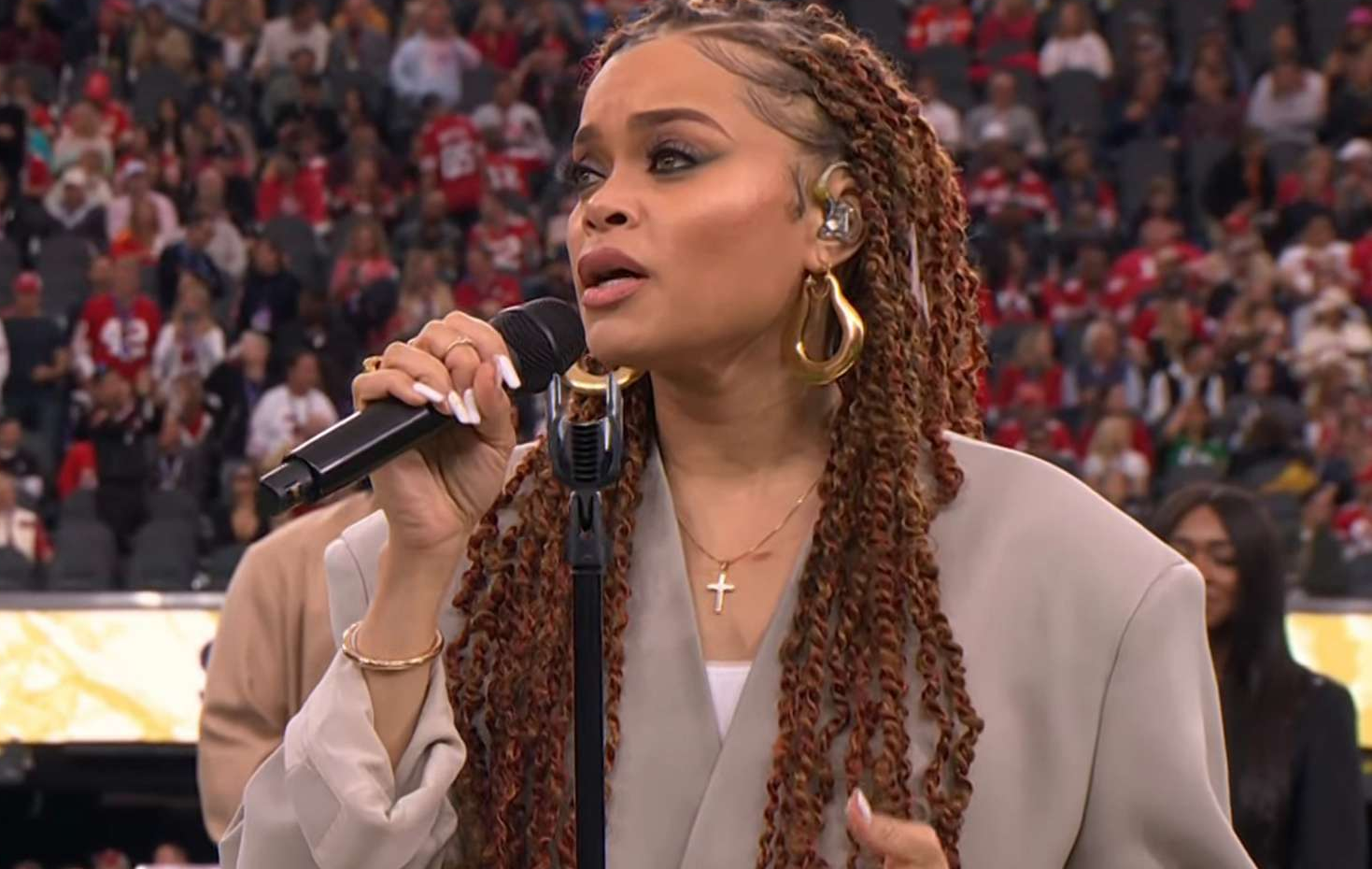Once again, the “Black National Anthem,” also known as “Lift Every Voice and Sing,” was featured at Super Bowl LVIII, continuing a trend seen in recent Super Bowl events. However, this year’s rendition received a different response from previous years: a subdued reaction from the audience.
Unlike previous performances, singer Andra Day’s rendition did not generate significant applause from the large crowd gathered for the premier football event of the year. After Day’s performance concluded, the camera captured a mixed reaction among attendees. While some individuals applauded, their response lacked enthusiasm. Meanwhile, others remained silent or appeared disengaged, with some even checking their phones during the performance.
In contrast, Reba McEntire’s rendition of the traditional national anthem received much more enthusiastic applause. This contrast raises questions about the NFL’s decision to include multiple anthems in its events. Despite the significance of “Lift Every Voice and Sing” and its expression of Christian-conservative values, its inclusion alongside the national anthem has sparked debate.
While “Lift Every Voice and Sing” carries deep meaning and symbolism, its incorporation into sporting events stems from a broader socio-political context. Some view its inclusion as a response to perceived racial injustices and as an effort to address systemic issues. However, critics argue that this approach deepens divisions rather than promoting unity.
While recognizing the importance of acknowledging diverse cultural contributions, proponents of a single national anthem advocate for unity and inclusivity. They argue that emphasizing a single anthem symbolizes the shared values and aspirations of the American people, transcending racial or ethnic differences.
Indeed, the United States, despite its imperfections, has historically championed individual freedoms and opportunities. Celebrating a single national anthem reaffirms the nation’s commitment to unity amidst diversity, encapsulating the collective pursuit of the American dream.
The proliferation of additional anthems tailored to specific racial or ethnic groups risks further polarization and division. Rather than promoting inclusivity, this approach reinforces distinctions and undermines efforts to foster national unity.
While “Lift Every Voice and Sing” holds cultural significance and deserves recognition, its integration into sporting events should not overshadow the importance of a unified national identity. Embracing a single national anthem underscores the shared values and aspirations that unite Americans across diverse backgrounds.
Ultimately, the debate surrounding the inclusion of multiple anthems reflects broader discussions about identity, representation, and unity in contemporary society. As the nation grapples with complex social issues, embracing a collective national identity remains essential for fostering understanding and solidarity among all Americans.
